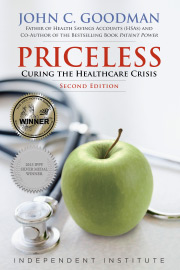The fastest growing part of the health insurance market these days is the private exchange. About 6 million workers selected their health plans through private exchanges this year, double last year’s number. The consulting firm Accenture predicts 40 million will do so by 2018.
In general, private exchanges are online health insurance marketplaces. Employers often give their workers a defined contribution, used to pay premiums for the products of competing health plans. Firms like Aon Hewitt, Mercer and Connecture are all in the business of building these marketplaces.
Is this a good idea? Before answering that question, let’s review the lay of the land.
In the American health care system no one ever sees a real price for anything. No patient. No doctor. No employer. No employee. Nowhere is that more true than in the market for health insurance. In fact, we’ve made it against the law to charge enrollees actuarially fair premiums—reflecting the expected cost of their care.
What difference does that make? As I wrote in Priceless, when everyone faces the wrong price, everyone ends up buying the wrong product. In the process, people face perverse incentives created by artificial prices, artificial markets and artificial competition. When they act on those incentives they tend to do things that make costs higher, quality lower, and access to care more difficult than otherwise would have been the case.











